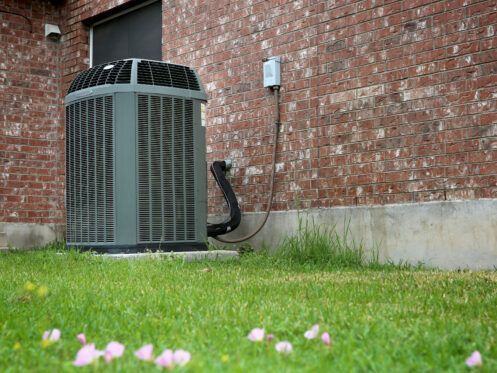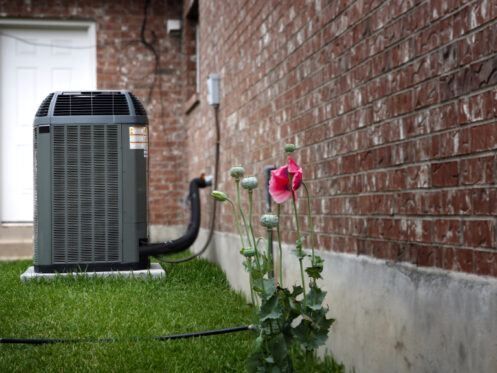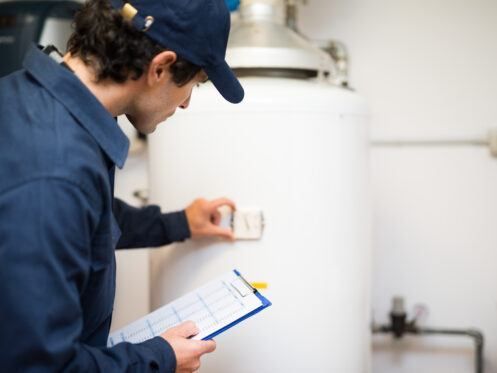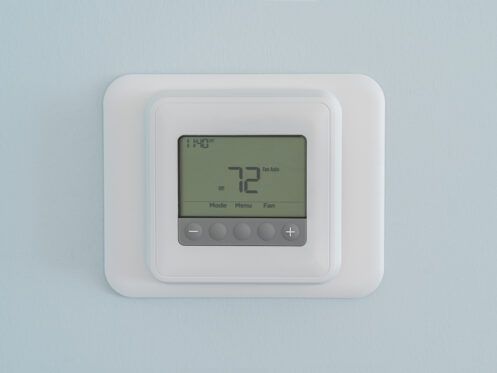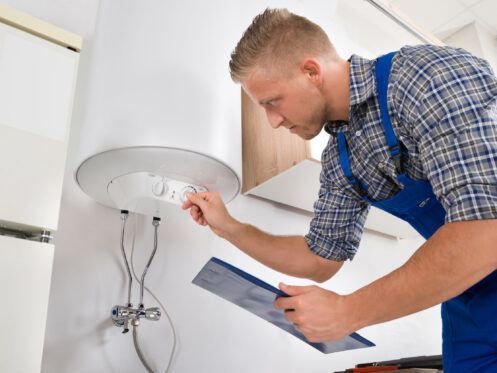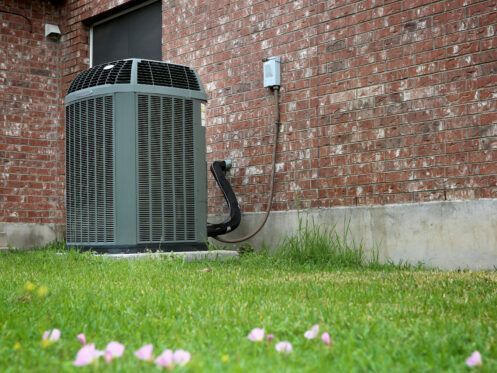5 REASONS WHY YOUR FURNACE MIGHT RANDOMLY TURN OFF
Ideally, a functional furnace runs and keeps doing so until the temperature specified on the thermostat is attained. Afterward, the furnace will power off to maintain the desired temperature. When the temperature drops after a while, the furnace starts running again, and the process is repeated consistently. However, a homeowner might encounter a furnace that randomly turns off, meaning that it doesn’t stick to the pattern set out by its manufacturers. HVAC experts refer to this phenomenon as short-cycling, since the system does not reach the desired heat levels before turning off. The irregular sequences result from a greater problem within the furnace and require attention from an HVAC professional immediately. Here are some of the reasons why your furnace turns off randomly.
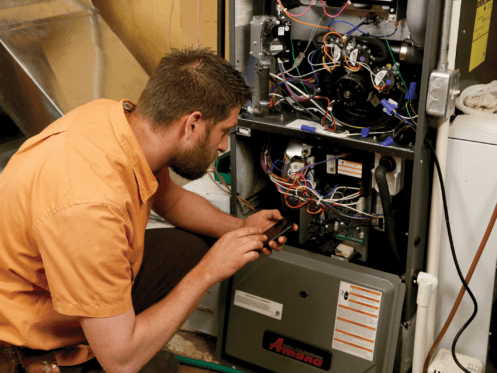
1. FAULTY THERMOSTAT
A furnace’s thermostat controls the rest of the heating system. If it’s broken or malfunctioning, it could cause your furnace to turn off at random. The leading cause for a thermostat’s breakdown can usually be attributed to frayed or old wiring or to depleted batteries. Additionally, the location of the thermostat can cause it to malfunction. Suppose your thermostat is stationed close to a heat source like a heat register or situated in direct sunlight. In either scenario, the device’s temperature readings will be skewed, causing it to turn off and on irregularly. If you feel this might be the problem, contact one of our HVAC experts from Tyler’s Heating & Cooling to reinstall your thermostat in an appropriate location or replace it if it is broken.
2. DIRTY AIR FILTER
When air filters operate for long periods without cleaning or replacement, they tend to restrict airflow into and out of the furnace. Consequently, the furnace’s heat exchanger can retain excessive heat. Overheating may then occur, contributing to the furnace turning off randomly. A safety switch inside the furnace turns off your furnace to avoid possible damage whenever it overheats. Whenever you encounter this problem, contact a heating expert to inspect your filter and have it cleaned or replaced if necessary.
3. AN OVERSIZED FURNACE
It is critical to determine whether a furnace is the right size for your home before purchasing it. Some homeowners are tempted to invest in the biggest furnace possible, believing that these devices are more capable. One of the reasons your furnace may be short-cycling is that it might be too big for your home. The furnace heats your home too quickly and then turns off abruptly. Since there is no consistent heat supply as with a properly sized unit, your home starts to get cold again, resulting in a cycle of the equipment successively turning on and off.
The furnace’s components will experience an increased rate of wear, and homeowners are likely to face unpleasant temperature changes. If you experience this kind of problem, consult HVAC professionals from Tyler’s Heating & Cooling to determine the right size furnace for your home and have your old one replaced.
4. A DEFECTIVE FLAME SENSOR
A flame sensor is responsible for shutting off the gas valve when it does not detect a flame in the unit, preventing gas from spreading to the rest of your home. If the sensor is corroded or dirty, it won’t detect the flame. In this case, it ends up shutting the gas valve and turning off your furnace. Thus, it causes the flame to turn off every time it lights, making the furnace cycle on and off too quickly. Contact an HVAC technician from Tyler’s Heating & Cooling to have your sensor cleaned or replaced to fix this issue.
5. BLOCKED VENTS OR EXHAUST FLUES
A furnace generates warmth by heating air and directing it through the ductwork and vents. When the vents are blocked, there will be an accumulation of heat in the unit. Eventually, the trapped air will result in overheating, causing the furnace to turn off randomly. Exhaust flues may get blocked by vegetation, nests, and snow, causing the system to overheat and shut down. Schedule an appointment with an HVAC expert and have these parts unblocked or replaced to solve this problem.
RELY ON THE EXPERTS
It is critical to address the above issues promptly to prevent potential damage to your furnace and have your system resume its normal functioning. If you need help figuring out where to start, contact our heating experts from Tyler’s Heating & Cooling to effectively diagnose and fix your furnace’s short-cycling problem. We also offer comprehensive heating, cooling, and plumbing services in Mishawaka, IN, and the surrounding areas. These include repair, installation, maintenance, and replacement of furnaces, air conditioners, and plumbing. Contact us at Tyler’s Heating & Cooling today for outstanding HVAC and plumbing solutions.
